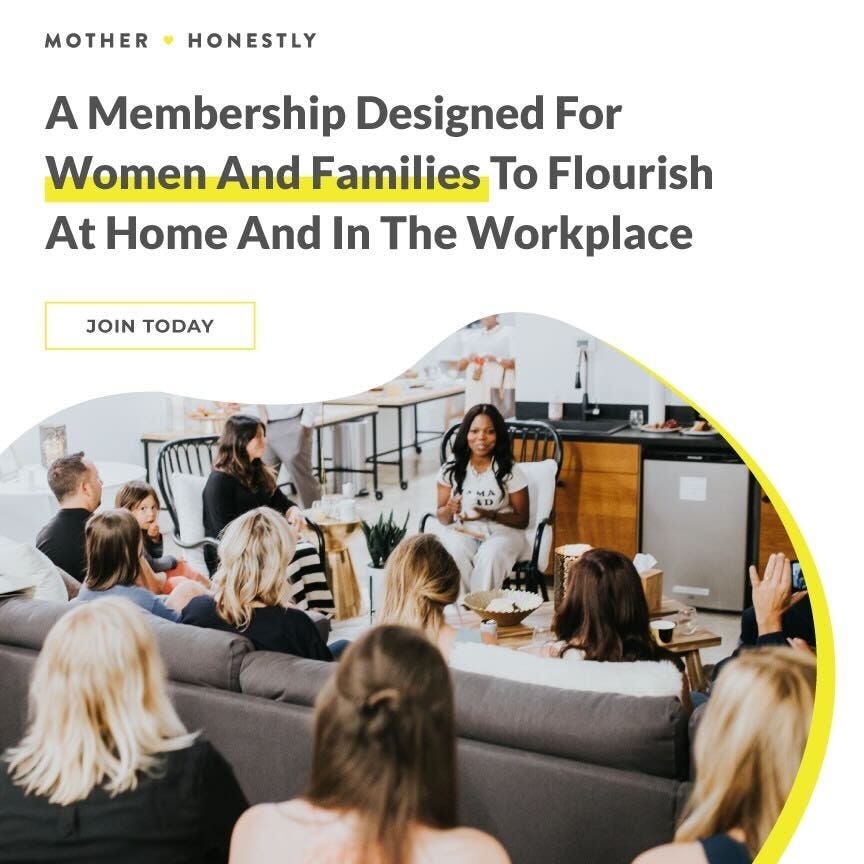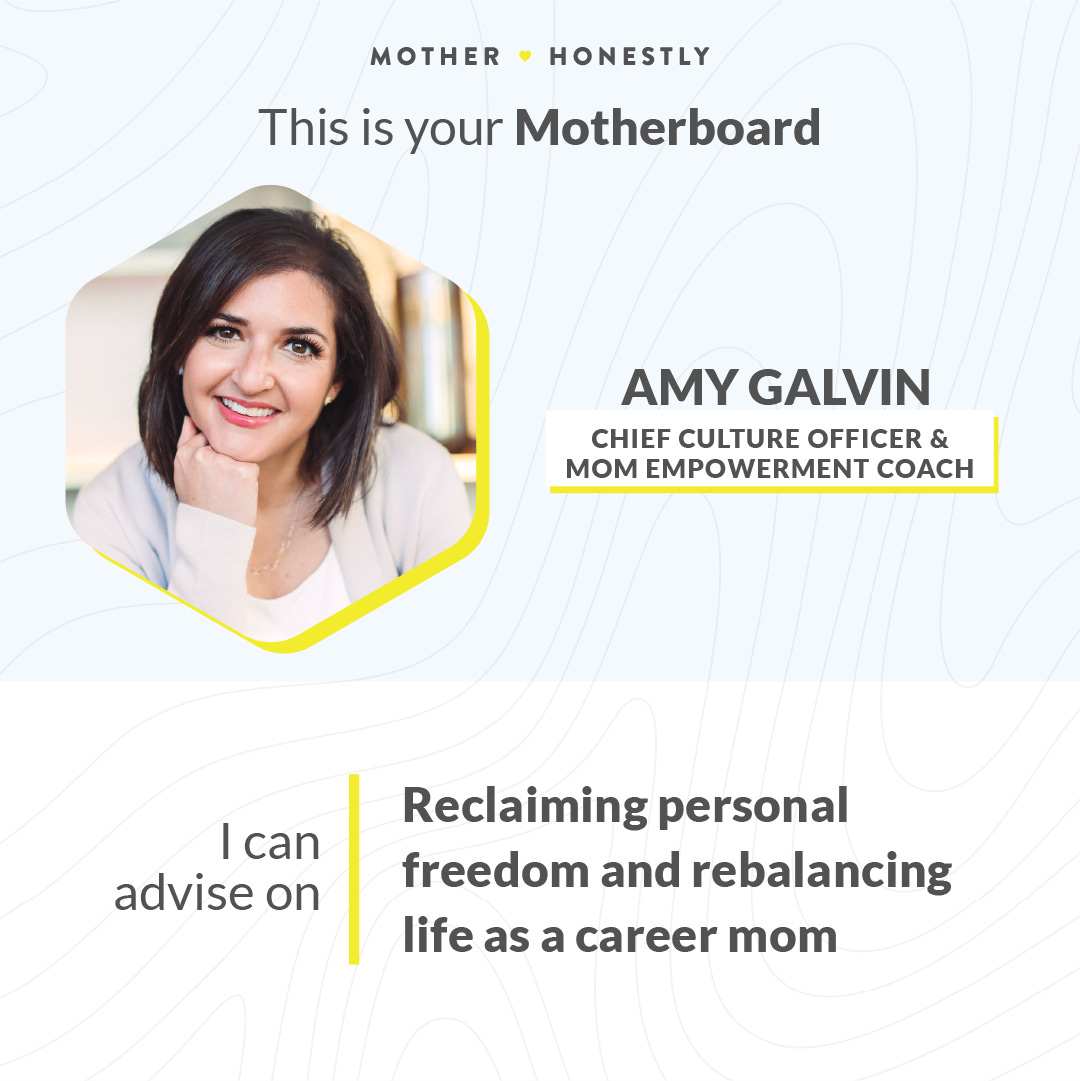‘I'm Calling on Men to Parent Out Loud’
Girls Who Code Founder Reshma Saujani issues a challenge to dads—and we’re here for it.
When my daughter was born in 2019, my husband took four weeks of paternity leave. Based on the reaction of his colleagues in the legal profession, you’d think he took four years.
As someone who has been advocating for paid family leave for much of my career, it was a sobering reminder that we still have a long way to go. Yes, paid leave is exceedingly popular with voters. Yes, more companies have introduced and expanded paid leave benefits, especially during the past two years. Yes, men are just as likely as women to say they need leave. And when the baby arrives, most fathers want to be an equal caregiver to their partner.
And yet.
My husband’s coworkers were shocked that he spent a month at home with our baby. That’s probably because dads in the U.S. take about one week of parental leave, while moms take 11 weeks. And women still perform more hands-on child care than men. Clearly there’s a disconnect between what dads say they want, and what actually happens.
Some of that is structural. Research shows that men are more likely to take leave when it’s fully paid—and it’s often not in the United States—and that they are afraid they’ll be penalized by their employers for prioritizing caretaking commitments over work. That’s a very reasonable fear, but I’ve got news for dads: Moms have those very same concerns, yet we still leave work early for ballet recitals and pediatrician appointments.
It’s surely no coincidence that it’s mostly moms—and women’s ERGs—who also lead the fight for family-friendly benefits both within their companies and from policymakers writ large.
So how do we get men to have the courage of their convictions when it comes to spending more time with their kids and less time at work? How do we get them to advocate for the policies like paid leave and childcare subsidies that would enable them to do just that? How do we get men to “start shouting,” as New York Times columnist Jessica Grose puts it, since “this country won’t listen to moms?”
That’s the question I posed to Girls Who Code Founder Reshma Saujani, the author of the just-released bestseller, Pay Up: The Future of Women and Work (and Why It's Different Than You Think). The book argues for a sweeping culture shift that lifts the burden we place on individual women to be primary caregivers in a system built for and by men. Of course, women can’t (and shouldn’t have to) rebuild the system on our own. So how do we get men to, well, pay up?
Q: You've said that men should be forced to take parental leave—and I absolutely agree—but there's one big hiccup: Men still overwhelmingly control the companies that make these decisions. How do we make men in the corner office realize the salience? What can we do differently given that what we've tried hasn't worked so far?
A: We have an enormous opportunity right now. During the Great Resignation, companies are fighting for talent. CEOs know this, and know that to attract and retain their employees, they need to think about their benefits and offerings. So employees have leverage to ask about flexibility, paid leave, subsidizing child care, and more. We all stand to gain from workplaces that support working mothers and we're in a critical moment to advocate for change.
Q: Men don't seem willing to spend social capital on paid leave or childcare affordability. For example, I've talked with a lot of women in the paid leave advocacy space who say their own husbands are hesitant to advocate in their own workplaces and industries. How do we change that?
A: I know there are so many men who want to take paid leave, but have felt they would be penalized at work. As moms, we know this all too well. We must change this. So many men have spent more time at home over the last two years and don't want to go back to the old normal. They want to take their children to school, to go to appointments, to have the flexibility to make time. I'm calling on them to parent out loud. Model the behavior at work. Support your teams by encouraging them to have flexibility and take advantage of their benefits. We make change when our allies and advocates lead by example and make space for culture to change.
Q: Given that many working moms are struggling with burnout, what do you think is the most effective thing we can do right now to move the needle on issues like paid leave and childcare affordability?
A: I empower every working mom to think about what is one thing that her workplace can offer her at the moment to improve her life. Maybe it's the ability to be flexible on Thursdays or start two hours later on Friday. Then, ask for it. When we get comfortable advocating for ourselves, we are strengthening the muscles that will allow us to be activists in the future.
BECOME A MEMBER:
Our digital membership helps you flourish at home and in the workplace with:
Access to toolkits, worksheets, resources to manage your household and career.
Monthly Motherhood Conversations with women in the workforce in similar life-stages. Coming up on April 21st!
Curated digital events to support your journey personally and professionally.
100+ hours of video content on childcare, household management, outsourcing, managing burnout, and more.
JOIN US:
Join us May 5th at 12:30 p.m. to talk about what’s next for women who want to flourish at home and at work.
BOOK A 1-ON-1 CONSULTATION TODAY:
Stop winging it. Get coaching, feedback, advice, and mentorship from the nation’s top leaders in parenting, work and life, including mom empowerment coach Amy Galvin. Schedule a Motherboard session today!
SPONSORED BY BRIGHT HORIZONS
What Does Early-Stage Education Really Mean?
If you’re on the hunt for child care, you’ve probably heard that a strong early learning component can be enormously beneficial for your baby. But just because a program calls itself an education program doesn’t automatically make it high quality. A true high-quality early childhood education program is based on a deep understanding of how young children learn, and provides engaging, hands-on experiences within a setting of comfort and trust. If you want to make sure your center offers just that, we asked the experts at Bright Horizons, the nation’s largest child care provider, to share their best advice. Here’s what Rachel Robertson, Vice President of Education and Development at Bright Horizons, suggests you should look for. Learn more here.
LOVE TO SEE IT
Maryland passes paid family leave. Maryland became the 10th state (in addition to Washington, D.C.) to pass paid family leave, after lawmakers voted to override the veto of the state’s Republican Governor Larry Hogan. The law provides workers up to 12 weeks of paid time off to care for a new child, an ill family member, their own health condition or to cover for a deployed service member. Workers will be paid on a sliding scale according to their income, up to a maximum of $1,000 per week, with lowest-income employees earning 90 percent of their weekly wages. Even better? Delaware looks poised to pass a similar measure soon.
Walmart unveils plans for a 73,000-square-feet onsite child care center at its headquarters. The center will offer spots for up to 500 children ranging from 6 weeks old through pre-K, and it will allow school-age children after school and during the summer if space is available.
The number of female-founded unicorns quadrupled last year. An impressive 83 companies founded by women were valued at more than $1 billion in 2021, according to a report by Female Founders Fund. (The bad news: They made up just 15 percent of the year’s 595 new unicorns.)
HATE TO SEE IT
Black mothers are three times more likely than white woman to die in childbirth in the United States. Advocates are fighting to address the disparities during Black Maternal Health Week this week. Vice President Kamala Harris will host a Cabinet meeting to discuss Black maternal health, and the Biden administration has dedicated $3 billion to help fund programs—such as rural maternal health coverage and implicit bias training—to help reduce Black maternal mortality.
#RELATABLE

This newsletter was written by Audrey Goodson Kingo, Editor in Chief at Mother Honestly. Please send feedback, ideas and suggestions to me at audrey@motherhonestly.com. And if you found this newsletter helpful, share with a friend:






